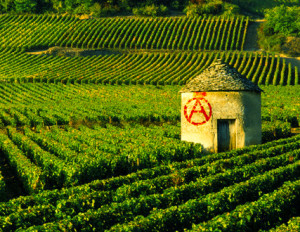Those who claim that we need the State to take care of the environment, protect the lakes, streams, rivers, forests, and declare National/State Parks are unconsciously committing various logical fallacies such as the appeal to antiquity, appeal to authority, false dichotomy, and tragedy of the commons.
The tragedy of the commons is the brooch that characterizes all “public property”. It demonstrates how human action is directly affected with an alteration in the incentives. When everyone “owns” a particular piece of land, forest, lake, stream, or river, it is the same as if nobody owns it. When nobody owns something there is no vested interest towards preservation and conservation. Therefore everyone seeks to use that natural resource to its fullest capacity without thought of the future. The tragically inevitable result is waste and plunder until that resource is thoroughly barren and depleted.
Moreover when a natural resource is State owned and considered “public property” it still requires currency and resources to maintain. How can a monopoly on initiated aggression know exactly what is needed to maintain this natural resource when all currency is obtained at the barrel of a gun and there is no competition to establish the price equilibrium? Without allowing for open competition in the Free Market these factors cannot be adequately determined. The result is further waste and inefficiency.
If, however this natural resource becomes privately owned the incentives change dramatically. Some people may choose to homestead it by living there, erecting a home, and starting a family. Other people may respond to the demand for untouched wilderness for the purposes of hiking, camping, backpacking etc. Such wealthy investors might purchase these large swaths of wilderness for the express purpose of maintaining their pristine nature for those who appreciate the natural world. They would be in direct competition with other wilderness owners and indirect competition with any other activity that consumers might elect to do in their spare time. Their incentive would be to care for, ensure future survival, and maintain this natural resource as it is satisfying significant consumer demand. Free Market Capitalism is an elegant solution to a world of infinite desires and scare resources.

